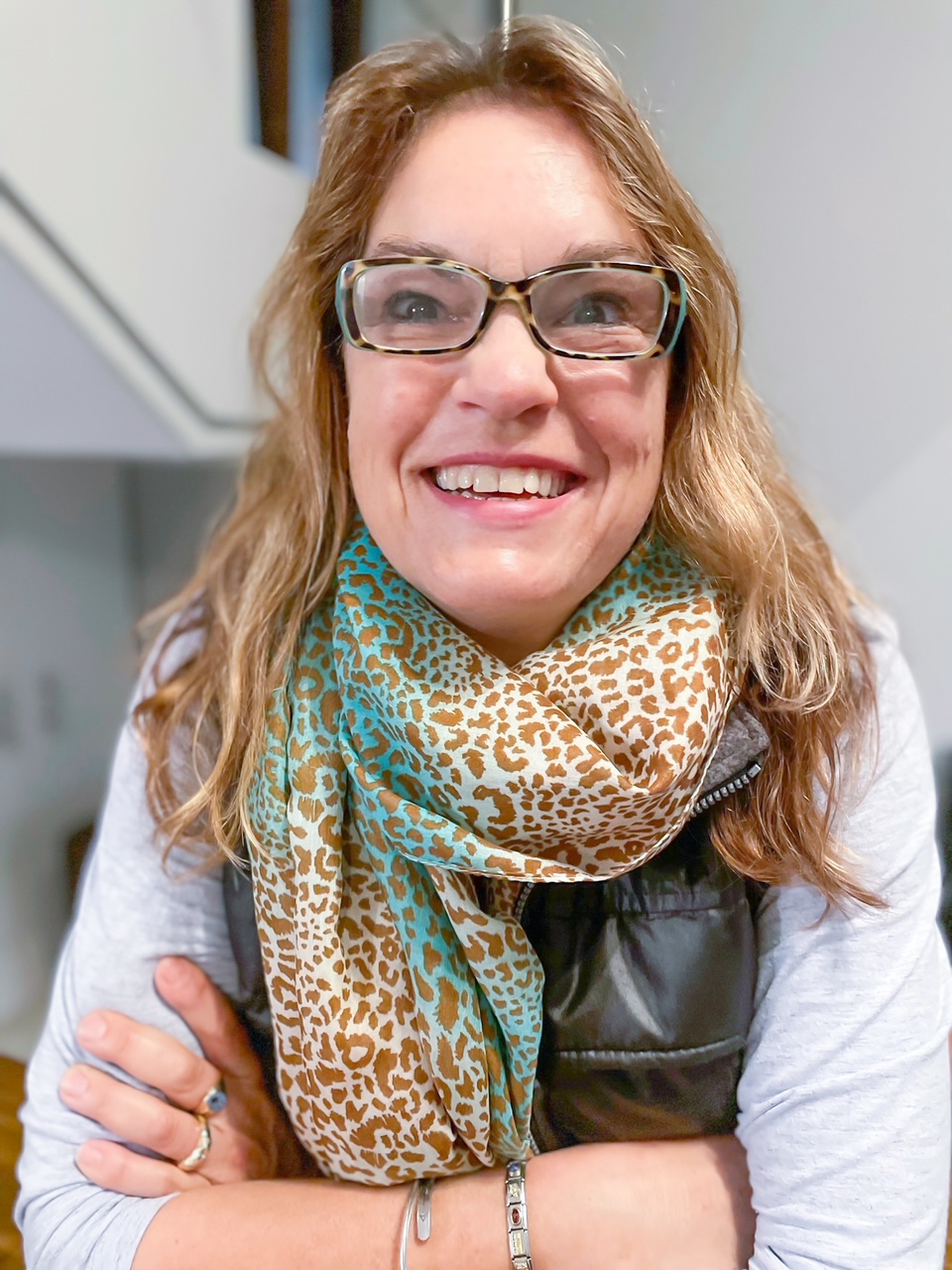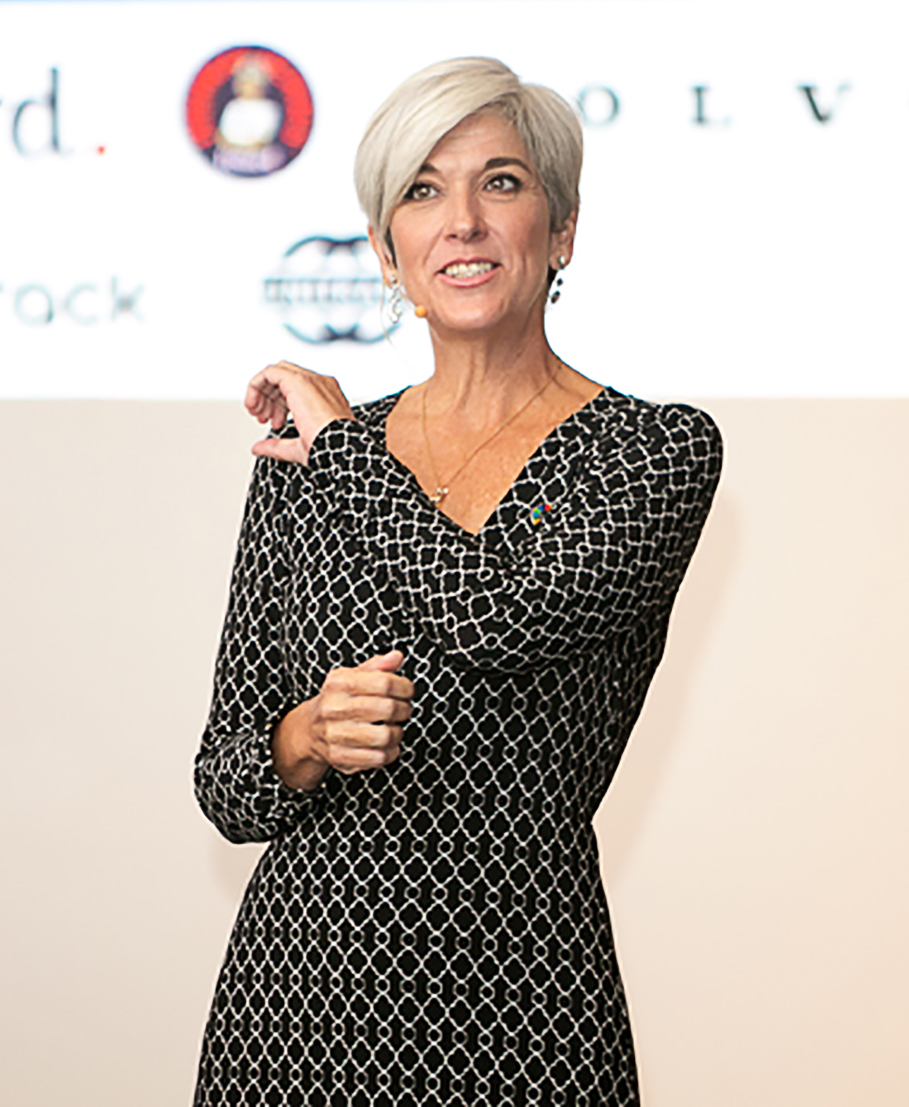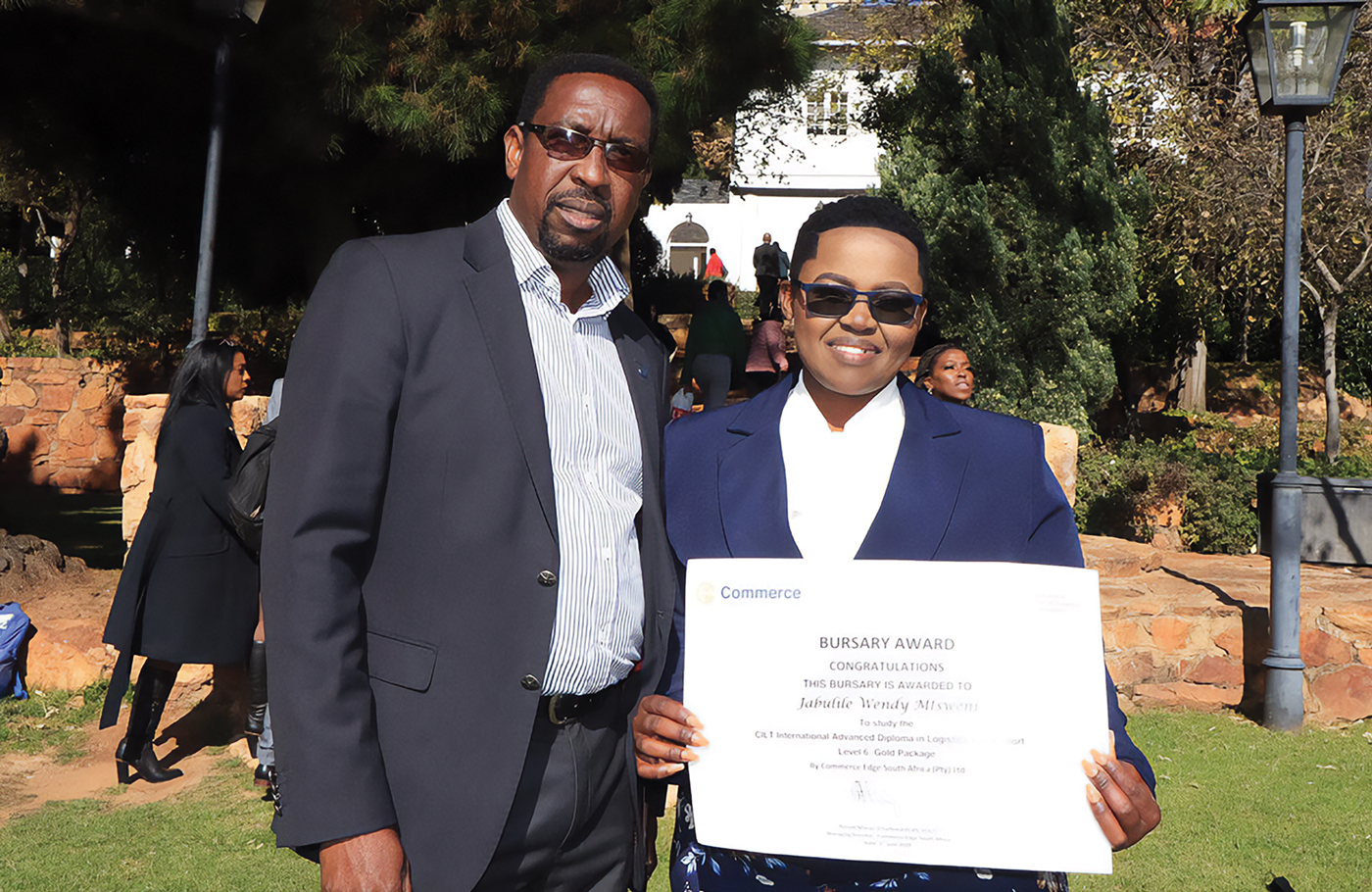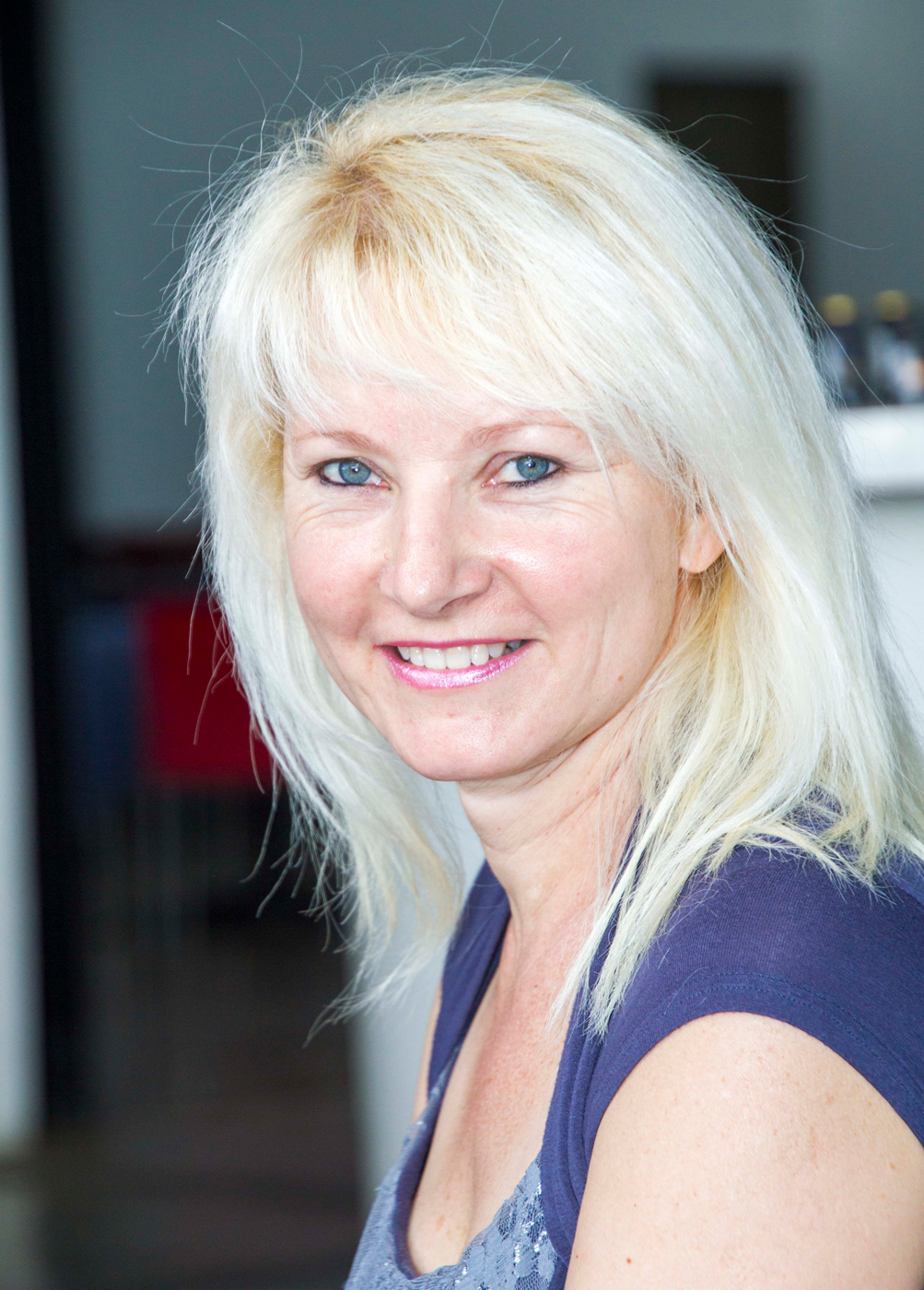Celebrating transport’s leading ladies!
Celebrating transport’s leading ladies!
Each August, South Africa celebrates Women’s Month. What better time to pay tribute to some of the leading ladies of transport and logistics?
While there are still more men than women employed in the field of transport and logistics in South Africa, more and more members of the fairer sex are entering this sector of industry. We would like to pay tribute to some of these women. These are seven women who are making their mark within the field of transport and logistics in South Africa.

Alina Williams: general warehouse manager at Rhenus Logistics
When Williams left school, she was offered the opportunity to join a logistics company and complete a three-year dual Bachelor’s programme. “I was able to interchange between study and work at the same time. It was an amazing way to get to know the industry,” says Williams, and she adored it. “Logistics has always been a dream of mine. I absolutely love the fast-paced environment and working with only the bravest and most unique innovative individuals that you will ever come across,” she adds.
Williams joined Rhenus as a logistics graduate in 2013. “I quickly climbed the ranks of various supervisor positions within our warehouse operation and now I am the general warehouse manager,” she reveals. In this role, Williams looks after the company’s four warehouses in Johannesburg – and she’s clearly passionate about what she does: “I love leading and mentoring staff. I also love client interactions and solving everyday daily logistics problems. I most enjoy empowering my team and making the impossible happen.”
She says the industry was quite different to her expectations. “Logistics is full of learning and development opportunities. It is very definitely not just logistics. Your knowledge needs to expand beyond just moving a package from A to B. You need to know your market, the related economics, laws and regulations, and all the new and fancy technology that is out there,” Williams points out.
The landscape of the industry today is very different to when she first joined. “Clients are seeking more compliance and sustainability in their portfolio and their partners. They want to be associated with companies that portray similar values to their own,” she explains.
Williams and her team are very optimistic about the future. “I believe online orders and deliveries will still continue to increase. The shipping industry will remain unstable for the next few years, which will make planning a bit more unpredictable. We will be tasked with finding new solutions again. It’s all about adaptability,” she notes with a wry smile.
She has high hopes for the company, sharing, “I would love to see our warehousing space grow and cannot wait for us to move to our new premises,” while she would also like to see more women enter the field of logistics. “It is true that logistics is generally associated with men and hard physical labour, but this is far from the truth. Logistics has evolved and needs more women with different perspectives and mindsets in it. It’s important to have a balance. It’s time for women to become part of this amazing community and share their passion. Networking is so important in this industry and once you have been in it for a while you get to meet amazing people,” Williams contends.
To all the women out there considering a profession within the field of logistics, she says this: “If you are looking for purpose, this is the industry to be in. You have the ability to make a real impact.”

Melanie Naidoo-Padayachee: executive – people development at Unitrans Supply Chain Solutions
The first Indian woman to join the leadership team at Unitrans Supply Chain Solutions, Naidoo-Padayachee was exposed to the commercial vehicle industry as a child. “My dad was a trucking business owner, so I had hands-on exposure to the industry. I was in the transport industry – but the aviation sector – for about four years before joining the commercial vehicle industry. It was not planned but very ironic when I started working in logistics; I must say I felt at home. I enjoy a walk through our depots, especially the workshops – it’s very nostalgic for me,” she tells FOCUS.
Her dad was also pivotal in one of her greatest career moments, namely the launch of the UniDrive driver programme. “It was born after seeing my first DriveCam footage where a driver lost his life, coupled with my own loss of my dad in an accident. I knew we had so much to do,” Naidoo-Padayachee reveals.
While saving lives will always be paramount, there is also, of course, much to do in other aspects of the business. “I’m highly optimistic about the next few years, as we appear to be finally coming out of the pandemic but, as with anything, there are challenges. The pandemic has created a heightened sense of awareness pertaining to the value of logistics and supply chains. But, at the same time, technology is revolutionising the way we do things. In the South African context, it is difficult to strike a balance between innovation or service excellence when low margins are expected given the current complex landscapes,” she notes.
Yet another challenge is getting more women into transport and logistics. “The landscape of the industry today is very different from days gone by. It is progressive and more accommodating. Most importantly, we are changing the notion of a woman’s inability to work in technical spaces,” she emphasises.
Naidoo-Padayachee stresses that this is not just about equality but also about the value of diversity in driving business forward. “We need diversity of thinking at all levels in business and we need more employment opportunities for women to undo the systemic disadvantages linked to gender inequality.” This isn’t just about doing the right thing; it also makes sense. “Recently we partnered with our business intelligence team and analysed the data of our female drivers in comparison with similar male drivers – and the risk profile of the women is definitely lower,” Naidoo-Padayachee reports.
Thankfully, she is not facing an upward battle when it comes to promoting diversity. “At Unitrans, we are honoured to have a CEO who truly respects women and the incredible value we all bring to the organisation. The fundamentals of our culture speak to this, and leadership is meant to help each employee to be seen, heard, appreciated, and understood,” she says.
And what would Naidoo-Padayachee advise a young woman considering a career at Unitrans or in the wider commercial vehicle industry? “I would tell them that, most importantly, this industry needs women who understand their role. It is not just to deliver on the job requirement but to be a change agent for workplaces to be more inclusive and pave the way for other women – always.” Which is precisely what Naidoo-Padayachee does every single day.

MJ Schoemaker: SAPICS president and owner of ProscE2E
When Schoemaker was at school, she had no plans to enter the field of supply chain management. “After school, I qualified as a high school teacher. I started working in supply chain by accident when joining a company that described a role I thought I would enjoy. I never dreamed that I would end up in the supply world!” she reveals. “I had no expectations of the industry at the time but was excited to see that it was not just about trucks and warehouses.”
Schoemaker entered the supply chain field in the planning space. “I soon realised that it was great fun! My career has stretched across different companies in global roles including customer service, demand planning, and sales and operations planning. I was promoted up the ladder to board-level positions. I was also responsible for leading a company-wide global department in setting standards for sales and operations planning. Currently, I have my own business called ProscE2E. It supports companies in realising operations excellence, which is where I wanted to land, so the journey was well worth it! Recently, I have supported the Department of Health to ensure chronic medication gets delivered to patients during Covid-19. This was highly rewarding, knowing that I was contributing to a life-saving initiative.”
She says that the supply chain field is quite different to when she first entered the sector: “The landscape has changed completely, in that it is a highly analytical and fast-moving field that requires skills that were not needed in the past.”
The role of women within supply chain management has changed too. “The supply chain space has always been an area where women were typically in the service roles. Now there are many women at management levels, which is wonderful to see, but there is still an imbalance that needs to be addressed. We need the right people in supply chain management. I would like to see more women in the upper levels of the organisations to ensure diversity, which is proven to drive profit,” she contends.
Schoemaker is optimistic about the future of supply chain management. “The pandemic has meant that we have had to speed up and get used to change. Supply chain management is now on the map, and it is clear that it was an underestimated skill, which needs to be supported. Companies need risk management procedures and must be able to move quickly, as change will continue into the future. Going forward, I wish to continue supporting companies and contributing to raising the skill level of supply chain professionals,” she concludes.

Annah Ncube: operations supervisor at Transnet Pipelines
Ncube made the headlines recently when she was one of the top three students in the Commercial Transport Academy’s Excellence Programme, which included the Chartered Institute of Logistics and Transport’s International Diploma in Logistics and Transport.
This is especially noteworthy given the fact that she didn’t cut her teeth in transport or logistics. “When I joined the logistics industry, it was a transition from the South African National Defence Force (SANDF). I served in the military from 2007 to 2011. I then joined a logistics company in 2011 and was permanently employed as operations controller in 2012. It was a major change in my life!” she recalls.
While a move from the military into logistics may sound unusual, Ncube says there are some synergies between the two. “Working in the SANDF requires mental and physical abilities. In the logistics industry, the core function is to ensure the customer receives the right product cost-effectively at the right place and at the right time. Furthermore, the quantity and quality must be right. It is thus a high-pressure environment with some physical activities at times. Certain abilities – such as emotional intelligence, critical thinking, working under pressure, stress management, teamwork, problem solving, and a willingness to do some physical tasks – are required in both fields.”
In 2021, Ncube was awarded a scholarship to complete an International Diploma in Transport and Logistics Management offered by the Commercial Transport Academy. “That’s when it dawned on me that logistics is my passion. This course motivated me to enrol for a Master’s Degree in Commerce. I am currently busy with that, and I am researching operations management and customer service,” she expands.
Ncube notes that the logistics industry has boomed with the growth in e-commerce: “However, the impact of Covid-19 and the Russia-Ukraine war has slowed down most operations with the high prices of fuel making it difficult for consumers and logistics companies. Those fuel charges and the impact of load shedding and social unrest (highway blockages, for instance) create tremendous losses for logistics companies.”
According to Ncube, the logistics industry is becoming more accepting of women in leadership positions, although transformation is happening at a very slow pace. “It actually took me 10 years to be promoted to a first-line leadership position. I think there should be clear and consistent talent development and succession planning in logistics companies. My view is that logistics companies must embrace talent and refrain from bias. Some women are talented and, given the right opportunity, they work wonders.
“I graduated in 2022 with 95 women who are in the logistics industry, occupying positions in which they excel, and I believe there are more women like that waiting for opportunities to show their talent and skills,” she asserts.
“Young women need to know that the logistics industry offers lots of opportunities; you can work in multiple environments with one qualification,” she continues. “You can work in a warehouse, logistics operations, transportation, or in freight forwarding. To women, I have this to say: ‘Don’t let the opportunity miss you, the industry needs you.”
While Ncube contends that the future is unpredictable (because of factors such as the war), she’s hoping for the best, concluding, “My future career aspiration is to keep climbing the corporate ladder, study for a PhD in Logistics, and work as an expert in the field.”

Nicci Scott: owner of the Commercial Transport Academy
Scott’s story is one of opportunities seized, starting as soon as she left school. “I invested in a franchise to teach young girls poise, grooming, and modelling, and I started a home industry that began each day at 4 am, baking four dozen cupcakes, pies, and luxury sandwiches,” she explains.
Then, at just 21, she set up the first ferrier company for the car rental industry. “Back then, they would use temporary drivers or labour brokers. They took all the risks and had to manage the entire logistics process. My solution was to take on all risk and the logistics of moving hundreds of vehicles overnight by having the drivers onsite within 90 minutes of a telephone call from the client.
“It was a crazy business that consumed my youth with stress and worries, but I would not have done it differently. When I entered the industry, a few labour brokers offered limited services, and around five car carrier companies controlled the carrier market. It was challenging to carve out a market share without big entertainment budgets, cash flow to carry companies for extended periods, or a good market differential, but it was not impossible,” she tells FOCUS.
In 1999, she expanded into the commercial vehicle sector, with great success. But it wasn’t an industry she entered without reservations. “My dad was a truck driver, and I often observed him exhausted from driving hot and physically challenging trucks on poor road infrastructure. He retired as a driver in his 50s after losing most of his hearing, suffering from chronic back pain, and having swollen joints.
“Two to three times per week, he started his day at 2 am in Port Shepstone and drove to the most remote area in the then Transkei. He would arrive home after 7 pm, exhausted and incapable of engaging with us,” she says. “I begrudged the industry what it had taken from him and us, and for giving him so little in return, as we struggled financially as a family growing up. But, running my business, my dad and later my husband became my greatest champions.”
Scott notes that business conditions were very different when she was in her twenties. “It was easier to start a new business with fewer established and tested policies, processes, and systems. Sourcing funding seemed simpler and conversations with clients were less guarded and were held in trust,” she explains.
“Once we focused the business on the needs of the truck companies, Siyaduma Auto Ferriers became very innovative, introducing the first mobile satellite tracking devices for trucks, cab covers to prevent stone chipping, highly-specialised commercial vehicle trailers, super skilled truck drivers to be able to move across all the truck brands, and specialised banking and fuelling solutions. I maintained excellent relationships with my clients’ employees and executives, and discussions were transparent and mutually beneficial,” she recalls.
Innovation is also what is needed within the industry now, Scott believes. “For organisations to remain competitive, they need to invest in transformative digital technology, collection and reflection upon data, and end-to-end supply chain solutions. They need to invest in people and develop new skills and occupations so that we may automate risky and mundane functions. The supply chain industry is so diverse and is evolving rapidly as we draw upon the lessons Covid-19 presented, making it even more exciting.”
After 23 years of running her logistics company, being recognised as a trailblazer, innovator, and market leader, and being awarded six accolades, Scott decided to change her focus to developing people for the transport sector. “This led me to sell my company in 2018 to a JSE-listed group and expand my other business, the Commercial Transport Academy (CTA). Drawing upon the incredible networks I had fostered, I quickly established the CTA in the industry and was entrusted with wonderful projects to develop female commercial drivers and owner-drivers,” she says. “These projects created the foundation and learnings for the CTA to seek funding from the United States Agency for International Development (USAID) to expand its operations. As a result of this funding, hundreds of women have been trained and empowered.”
On this note, Scott is gratified to see that the industry is more accepting of women in leadership positions today, compared to 20 years ago. “I am seeing more women in leadership who are doing amazingly well. It is lovely to see so many male leaders embracing gender diversity because they see the value of investing in women. Women are definitely more represented and welcomed in leadership today than in the past, especially if they have a keen understanding of the sector.”
But it’s not all plain sailing. “I believe it is still difficult for women to be fully incorporated into some organisations and executive boards as they don’t get to share the same face time with leadership and decision-makers that male colleagues enjoy. Many corporates still harness a misogynist culture, but women should choose not to work for these organisations. I don’t see the point in challenging deeply rooted unconscious bias and stereotyped beliefs, especially when it serves the leadership.”
While women are coming to the fore, Scott says we still need more women at all levels of the industry. So, any words of advice for young women thinking about a career in the commercial vehicle industry? “Whether you are a professional commercial driver or an entrepreneur, don’t be afraid to take the first step to establish yourself in this dynamic industry. Put your hand up and put yourself out there!” In other words, follow Scott’s example…

Jabulile Mtsweni: operations supervisor at T-Marc Logistics
After a bumpy start in the transport game in 2010 (her first employer went into liquidation), Mtsweni is now recognised as a rising young star in the business. She says she loves transport and logistics because it’s never dull. “I love the fact that logistics is not a boring daily routine but has its different daily challenges. This gives one no choice but to think out of the box and come up with solutions while standing on one’s feet,” she says.
“I wanted something that would stretch my intellect and logistics continues doing that because daily challenges aren’t the same. For example, there may be a delay caused due to weather conditions. The way in which you deal with that won’t be the same as when you experience a delay caused by a fatal accident. Then the accident has to be thoroughly investigated and corrective actions fully implemented,” she continues.
Mtsweni clearly wants to develop as an individual; she has an endless thirst for knowledge. “In 2016, I registered with the University of Johannesburg where I completed my Diploma in Transportation Management. In 2021, I was admitted to the CTA’s Excellence Programme with Commerce Edge studying for the International Diploma in Logistics and Transport. Upon completion and graduating for my CILT International Diploma, I was then awarded a bursary to study further for my Advanced Diploma in Logistics and Transport,” she reveals.
While she’s been studying, she’s also been impressing her employers along the way. Just one highlight has been achieving Road Transport Management System (RTMS) certification for Sathala Plant Hire after just one attempt. “Most of our competitors had to reapply twice or more. The auditor applauded my preparation, and my bosses gave me an instant raise in salary after getting that report on my performance,” she recalls with a smile.
Mtsweni also has a smile on her face when pondering the development of women in transport and logistics. “There has been a notable change compared to when I first embarked on the journey of logistics as a woman. One can observe a gradual change in gender equality within the industry. More management positions are being offered to women and even jobs like truck driving are becoming more popular with women. I have observed that more women are in leadership positions and are trucking company owners. This means that women are getting to grips with how a profitable logistics company should be run.”
But she says more should be done. “The industry still needs more women as the numbers still do not balance and I believe that women are capable to achieve beyond what they’re expected to. I would advise young girls to be fearless and believe that they can do it prior to penetrating this male-dominated industry. This will help them to better deal with the anxiety of feeling overwhelmed and incompetent due to gender. I would assure them that as years pass by, one is able to build more confidence,” she advises.
Meanwhile, Mtsweni says her career is “gradually heading” in the desired direction. “During all these years of working in the industry, I have managed to hold positions such as administrator, junior safety supervisor, logistics coordinator, logistics manager, and currently operations supervisor. So I have grown and evolved as the years have gone by and I have acquired priceless knowledge within the industry.
“I would like to eventually see myself as a director in a transport company where I can implement all that I have learnt through the years,” she reveals.

Jo-Anne de Jager: Business development – solutions manager at Unitrans Supply Chain Solutions
De Jager is yet another superstar in the transport and logistics industry; like Annah Ncube, she was one of the top three students in the CTA’s most recent Excellence Programme.
The logistics and transport industry has been her “home” for the past 23 years and was something that always appealed to her. “I have always loved the sight of trucks. I see trucks as enormous, majestic creatures so, at the first opportunity that came my way, I joined a big logistics company,” she says.
That was back in March 1999. “I soon realised that the industry was very male-dominated. I thought that the business world would be more advanced than my very conservative upbringing. It was apparent that there was a shortage of women in leadership roles. There were also no female drivers in the company at the time,” she recounts.
But that has changed. “I think that the industry is much more accepting of women in leadership positions today. I am very fortunate to work at a company that is assisting women by recognising females who are excelling in this industry so dominated by men. Unitrans Supply Chain Solutions is promoting women in this industry by building a strong culture of providing equitable access to training and skills development to all employees,” De Jager reveals.
She is tasked with identifying possible new customers and is upbeat in this role. “I’m very optimistic about the next few years, as we appear to be finally coming out of the pandemic. Covid-19 created disruptions and caused long-term changes; it accelerated online purchases and package deliveries. Companies adapted to the pandemic by relying much more on online business functions. Companies have seen the benefits of online business dealings. Having a video call is much more economical than flying to meetings,” she notes.
She believes that companies are also seeing the benefits of employing more women, stating, “It is my view that we do need more women in the transport and logistics industry as some of the skills women possess are very beneficial to the growth of organisations.”
De Jager urges women to join her in the transport and logistics game. “If I can offer any advice to young women thinking about a career in the commercial vehicle industry it would be to realise that nothing is more powerful than a great attitude. I think it is also important to be a life-long learner. Take advantage of every relevant seminar and training course you can,” she urges. Given her success at the CTA, De Jager is clearly doing exactly that!
Published by
Charleen Clarke
One Comment
Leave a comment Cancel reply
focusmagsa





Is so awesome.Thumbs up to this 4 Ladies they’re so brave and powerful.Is so good to hear or see woman working so hard and reach their goals.They are so encouraging and empowering.I am so proud of them,I also want to work hard and see myself in this level. Patience,potential, empowerment and changes are needed.The opportunity is already here I must just use it, focus and do what is needed.They giving me a hope,as long I can work together with Growthwheel.My journey with Growthwheel is clear and loud.Even though am a shy person I cannot face the crowd but I will try my best because courage and opportunity are facing me here at Growthwheel.I will run with it until I get it.Together and through Growthwheel I will make it.